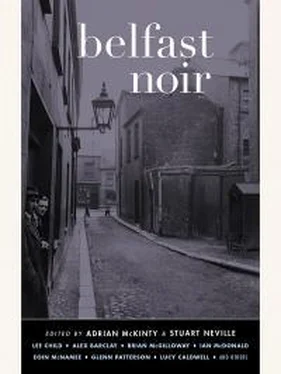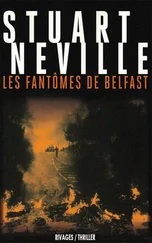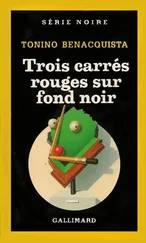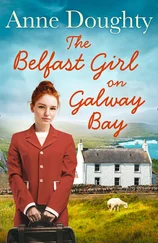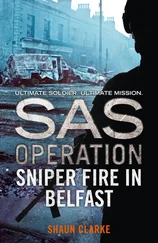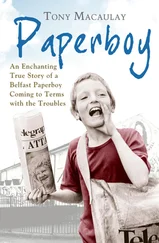We walked down Wandsworth Road, crossed the busy junction, then along the Upper Newtownards Road. When we got to the traffic lights at Castlehill Road, by Stormont Presbyterian, I kept us hanging about. I made sure I was standing facing the traffic. I was waiting for the Alfa Romeo to pass us: I knew in my bones that it would, knew that it had to.
When it did, I turned to follow it and didn’t take my eyes from it until it was gone completely from sight. And by the time I turned back, something inside me had shifted.
I spent an hour that night learning extra French vocab and practising my Spanish tenses, determined to impress him the following day, to make him notice me.
The next day I walked home with Tanya again, and the day after that, and pretty soon I was heading home with her every day. It was a twenty-minute walk from school to hers, and most days by the time we reached the Upper Newtownards Road his car would be long gone. But I took to noting which days he held his after-school language club for sixth-formers, or had staff meetings, and on those days I’d try to time our journey; persuading Tanya to come to the mini-market with me and killing time there choosing sweets and looking at the magazines, then lingering at the traffic lights by the church in the hope of seeing his car. On the days that I did, even just a flash of it as it sped past through a green light, I’d feel like I was flying all the way home.
Lisa and Donna were friends again, and Lisa still didn’t invite me on their Cairnburn nights, but suddenly I didn’t care. Three Saturday evenings in a row I let my mum think I was going to Lisa’s, and I walked the whole way to Mr. Knox and Davina’s house, and I moved past two, three, four, five times, and saw both cars in their driveway and the lights in their windows and once even caught a glimpse of him in an upstairs room.
It had to happen. I knew it had to happen.
The days you were most likely to see his car, I’d worked out, were Tuesdays and Wednesdays: one Wednesday, as I kept Tanya hanging about at the end of her road, Mr. Knox’s Alfa Romeo finally pulled up at the lights.
He was right beside us. Metres away. It was real: it was happening. For a moment, I couldn’t breathe.
“There he is,” I said, and Tanya followed my gaze and replied, “No, wise up, what are you doing?”
“Mr. Knox!” I yelled, and I waved at the car. “Mr. Knox!”
His windows were wound halfway down—he was smoking—and he ducked to look out, then pressed a button to wind them down fully.
“Hello?” he said. “What is it, is everything okay?”
“Mr. Knox,” I said. “We need a lift, will you give us a lift?”
“Stop it!” Tanya hissed at me.
“Please, Mr. Knox!” I said. “We’re really late and it’s important.”
The lights were still red but any moment they’d go amber, then green.
“Please, Mr. Knox,” I said. “You have to, please, you have to.” I had taken to wearing a dab of Poison every day I had a French or Spanish lesson—even though Lisa told me I was a weirdo—and I could still smell the perfume, Davina’s perfume, on me, and I wondered if he could too, creeping from me in a slow green spiral.
He took a drag of his cigarette and dropped it out of the window. “Where are you going?”
Tanya hissed and grabbed my arm but I wrenched it free. The lights were amber and as they turned green I was opening the passenger seat and getting in. There I was, in Mr. Knox’s Alfa Romeo. It was happening.
“Where do you need to go?” he asked again, and I said: “Anywhere.” He looked at me and raised an eyebrow and snorted with laughter, and I thought he might tell me to get out, but he didn’t, he just revved the engine and then accelerated away, and in the wing mirror I caught a glimpse of Tanya’s stricken face, open-mouthed, and I looked at Mr. Knox beside me—Mr. Knox, I was there, now, finally, in Mr. Knox’s car, me and Mr. Knox—and I started laughing too.
* * *
Afterwards, I couldn’t resist telling Tanya. I told her how he kissed me, gently at first and his lips were soft, then harder, with his tongue. I told her how he undid my tie, and unbuttoned my shirt, and how his fingers were cool on my skin. I told her how he slipped his hand underneath my skirt and traced his fingers up, then hooked his fingers under my panties and tugged them down.
“He didn’t ,” she said, big-eyed and scared, and I promised her, “Yes, he did.” And her shock spurred me on, and I said how it hurt at the start. I said there was blood. I said it was in the backseat of his Alfa Romeo, in a cul-de-sac near the golf course, and he’d spread his jacket out first, and afterward he’d smoked a cigarette.
Once I’d told Tanya, I had to tell Donna, and Lisa, and when Lisa looked at me with slitted eyes and said I was lying, I got out the condom and showed them: as proof, I said, he’d given it to me for next time.
I hadn’t counted on Tanya blubbering it all to her mother: all of it, including the time we went to his house. We got in such trouble for that, but the trouble he was in was worse.
Even though I cracked as soon as my mum asked me, told her that I’d made it all up, she didn’t believe me—couldn’t understand why I’d make it up or how I’d even know what to make up in the first place. In a series of anguished phone calls she and Tanya’s mother decided Mr. Knox had an unhealthy hold over me, over all of us.
There’s no smoke, they agreed, without fire.
They contacted the headmistress and that was that: Mr. Knox was called before the governors and forced to resign, and I was sent to a counsellor who tried to make me talk about my parents’ divorce. And then, in the autumn, we heard that Davina had left Mr. Knox: had taken her babies and gone back to her mother’s. It must have been her worst nightmare come true, the merest suggestion that her husband, the father of her two children, would do it again. She, more than anyone else, would have known there was no such thing as innocence.
I think she was right.
I don’t believe it was a one-off.
What happened that day is that he drove me five minutes up the road, then pulled a U-turn at the garage, and drove back down the other side and made me get out not far from where he’d picked me up and said, “Now this was a one-off, you know,” and laughed.
But I can still see his expression as he dropped me off: the half-smile, the eyebrow raised even as he said it wasn’t to happen again.
It had happened before. And there’s a certain intensity that only a fourteen- or fifteen-year-old girl can possess: I would have redoubled my efforts at snaring him.
If only I hadn’t told Tanya.
* * *
I lifted my glass of wine and took a sip, and then another. Mr. Knox and Melissa were still giggling over the cocktail menu, flipping back and forth through the pages.
“Excuse me,” I said, turning to the bar and addressing the nearest barman. He didn’t hear me; carried on carving twists of orange peel. “Excuse me,” I said again, louder.
He raised his finger: one moment. But I carried on.
“You see the couple over there? By the window? The man with the black hair and the blonde girl?”
He frowned and put the orange down; looked at them, then back at me.
“Can I pay for their drinks?” I blurted.
“You’d like to buy their drinks?”
“Yes, whatever they’re having. All of it. I want to pay for all of it.”
“I’ll just get the bar manager for you. One moment, please.”
My heart was pounding. It was impulsive, and utterly stupid. My friends hadn’t even arrived yet; we’d still be sitting here when Mr. Knox asked for his bill in a drink or so’s time, and how would I explain it to them, or to him: because the barman would point me out as the one who’d paid for it. Even if I asked them not to let on, not to give me away, my name would be on the credit card slip, so he’d know. Or would he? Would my name mean anything to him, all these years later? Surely it would. Surely it must.
Читать дальше
